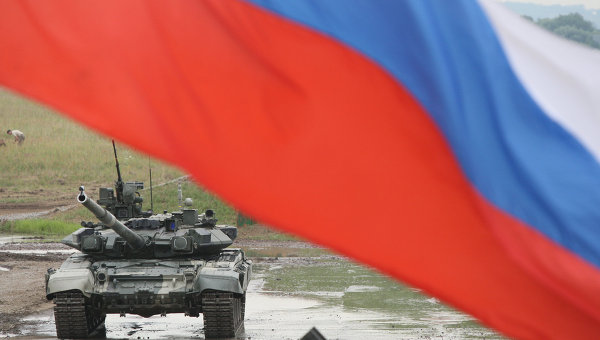
Political Struggle Breaks out over Defense and Procurement Spending
Publication: Eurasia Daily Monitor Volume: 9 Issue: 151
By:

Since 2008, Russia has been attempting to substantially reform its armed forces, and in 2010, it launched a massive procurement or State Armaments Program (SAP) for 2011-2020. That program calls for spending 23 trillion rubles ($723 billion) by 2020 to attain an armed force that is 70 percent modernized. However, by 2011, this program had ignited a major political controversy. Finance Minister Alexei Kudrin resigned because he argued this procurement program was excessive and inflationary, and beyond Russia’s means. Moreover, major weapons programs were already falling behind schedule as were targets for them. Now this has become a major political and economic struggle. Throughout 2012, Presidents Dmitry Medvedev and Vladimir Putin have lambasted the defense industry for its failures to achieve the programmatic objectives of the SAP. Yet at the same time, they maintained that the projected spending figures were immutable and have, indeed, increased subsidies to this sector despite repeated failures. Those loans and subsidies already amount to 300 billion rubles ($9.4 billion) (Interfax, July 30). The SAP has increasingly become a major political issue as other governmental figures have begun to argue like Kudrin that, in a time of declining growth and a European financial crisis, Russia cannot afford it.
Independent economists as well as the Ministry of Finance have been warning for some time that these defense budget increases as well as Putin’s promises of social welfare spending were unsustainable (Nezavisimaya Gazeta, May 21). According to Vedomosti, those collective pledges amount to 1.077 trillion rubles ($33.85 billion) through 2015 (Vedomosti, August 1) Indeed, Deputy Prime Minister Olga Gorodets has proposed slashing the contributions to the funded portion of pensions from 6 percent of payroll to 2 percent and using those funds to reduce the deficit of the state pension fund (Interfax, July 26). Similarly, economists have urged Prime Minister Medvedev to revise the three-year budget to cut spending and thus reduce expected deficits, reduce the value of an overvalued ruble, and hold to more realistic forecasts of future trends (Vedomosti, July 27). Moreover, Finance Minister Anton Siluanov advanced the idea of cutting state-funded jobs and pushed for an austerity budget that reins in state spending (Moscow Times, July 18). Under these circumstances, Vedomosti stated there will inevitably be a sequestration of funds and budget cuts and described the struggle within the government initiated by so-called realists who insist on strict budget discipline, realistic forecasts and estimates, as well as spending cuts. The Finance Ministry is leading this charge, calling for cuts of 2.2 trillion rubles ($69.2 billion) through 2015, not only of social welfare programs but also of police budgets (Vedomosti, July 19).
Consequently, the pressure to cut defense spending, particularly procurements, is also rising. Starting in May, the Ministry of Finance began to advance budgetary plans in this direction. In particular, Deputy Finance Minister Tatyana Nesterenko has supported the idea of reducing the army by 12 percent now and ultimately 20 percent, and to accelerate the time frame of that reduction (Novyy Region, July 2). Likewise, the idea of postponing the SAP for three years so that it will run from 2016-2023 is now under debate. And it is clear that these proposals to cut or lengthen the time frames for funding defense programs have created serious divisions in the government (Politkom.ru, July 4). Nevertheless, the Ministry of Finance and Defense Minister Siluanov are now talking about cutting defense spending by 20 percent in 2013-2015 (Interfax, Gazeta.ru, July 20).
Not surprisingly such demands have infuriated the defense sector. Defense industry actors are clearly still begging the government, in time-honored fashion, for subsidies even though it is clear they cannot meet state targets and have consistently failed to do so despite lavish subsidies going back generations (Interfax, June 28). When Finance Minister Kudrin resigned from government, then-President Medvedev angrily said that he would not let Russia become a “banana republic” (RIA Novosti, September 27, 2011). Chief of the General Staff General Nikolai Makarov’s retort to Deputy Minister Nesterenko’s proposed defense cuts, on the other hand, was characterized as “silence, woman” (Novyy Region, July 2). Similarly, the Minister for Economic Development, Andrei Belousov, also denied that the military’s procurement program would be cut (Interfax, July 2).
The loudest defender of the defense sector (as could be expected), Deputy Prime Minister for the Defense Industry Dmitry Rogozin, is even more outspoken. Warning that Russia cannot allow itself to be surrounded by a missile defense fence – invoking the usual inflated threat assessment of NATO’s missile defense system – Rogozin also warned that Russia, as it did under Peter the Great, would break the “fence” down. He also argued that if Russia is to master new technologies, everything must be produced domestically, thus re-invoking the dream of total autarchy that characterized the Soviet epoch. Finally, he said, “We will never allow anyone to achieve some kind of absolute superiority in any system being created, especially a high-tech system.” Rogozin’s simultaneous demand that “industry set fantastic objectives and not be afraid to make them a reality” in this connection appears to be another sign of the persistence of neo-Stalinist mantras such as “there are no fortresses that Bolsheviks cannot storm” (Ekho Moskvy Online, June 29).
Thus an ancient debate going back centuries has reappeared in Russia. Even the protagonists are the same as before. The Ministry of Finance (or the old Tsarist Ministry of Economics and analogous Soviet organizations) continues to warn that excessive defense spending is based on inflated threats, is inflationary in economic terms, overstates the country’s capabilities, and cannot be reached except by risking undermining Russia’s economic security. Meanwhile, the “steel eaters,” to use Nikita Khrushchev’s term, insist on the primacy of defense, magnify threats that are supposedly pervasive and demand no letup in the defense sector, which they, in true Stalinist fashion, continue to believe is the locomotive of economic development. It is not yet clear what decision will be taken in this round. But one can be sure of two things. First, this debate will not and cannot go away; it is inherent in the nature of modern great powers and is even more inherent in the closed, bureaucratic and unaccountable world of Russian governance. Second, the outcome of this decision will go a long way in resolving whether or not Russia will follow, as Lilia Shevtsova has argued (Journal of Democracy, Summer, 2012), the old “statist-military” paradigm, or whether the country will find its way back to some measure of security without militarism.




